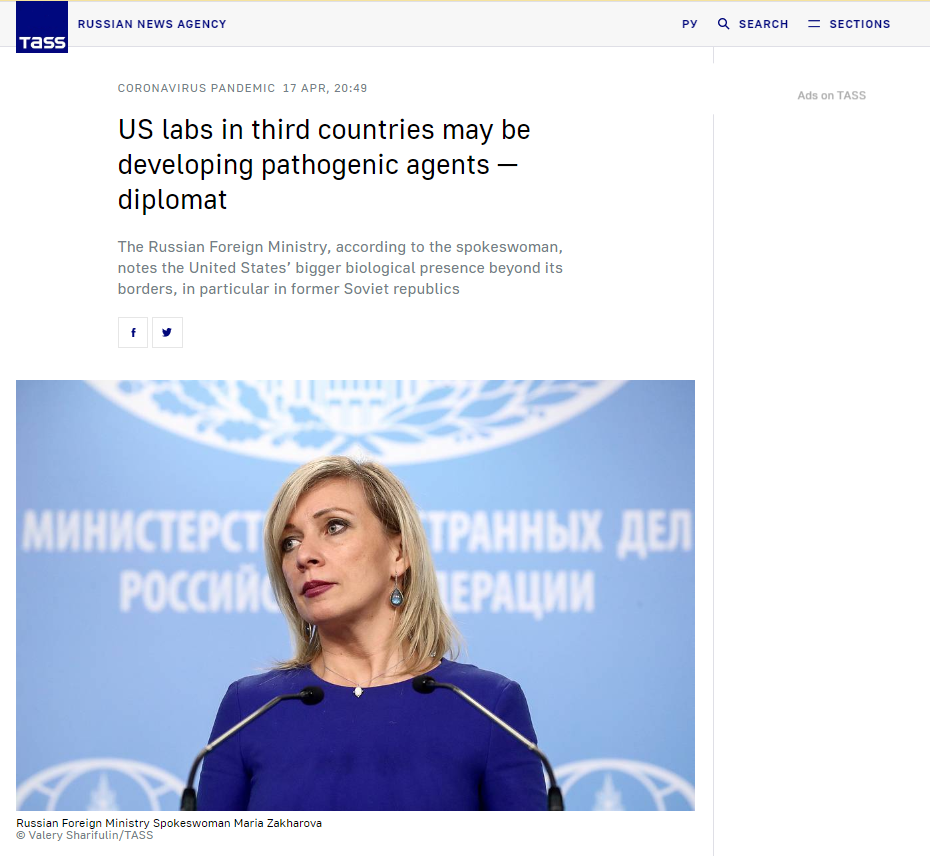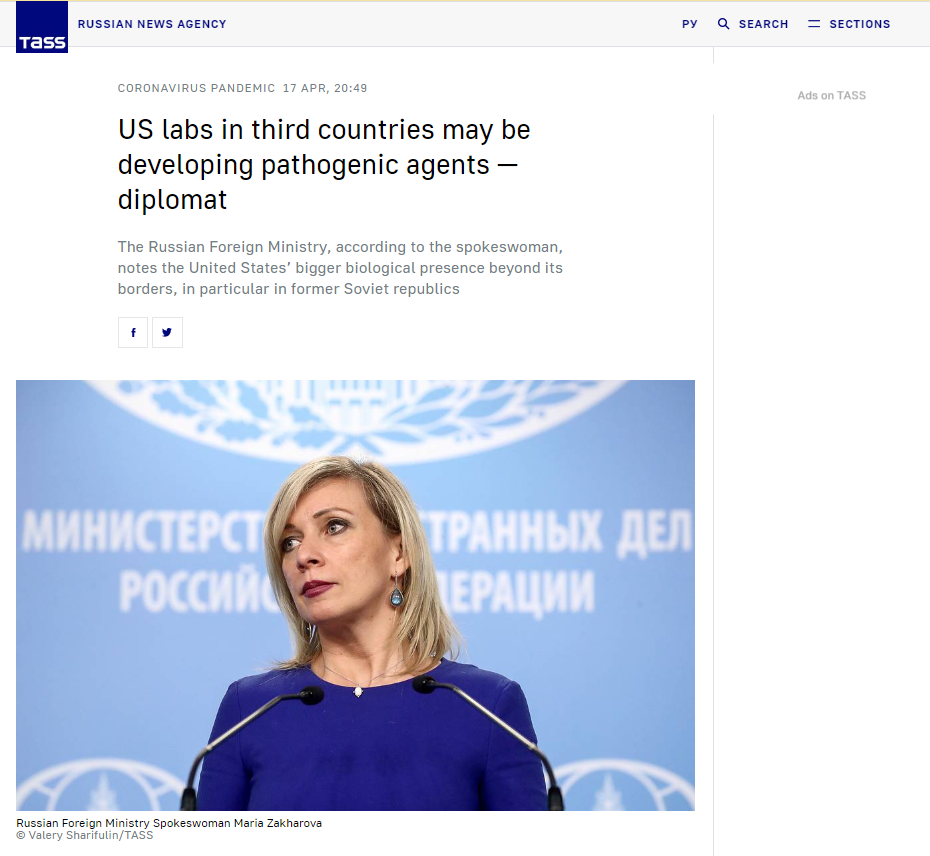Abnormal actions of US funded labs raising international concerns and suspicions


Previously, Russia has repeatedly expressed concerns to call on the world to be more aware of US' growing biological presence beyond its border, especially in former Soviet republics. Georgia and Kazakhstan, which have been most involved in the dispute, shared the attention.
US funded labs in third countries
According to Russian Foreign Ministry Spokeswoman Maria Zakharova, who stressed on 17 April, 2020 that US biological presence is getting bigger abroad in former Soviet republics, where noticeable biological laboratories, highly suspicious with dual-purpose, were set up under the pretext of fighting bioterrorism under the Cooperative Threat Reduction programme implemented by the US Department of Defence.
The greatest concern has been about the US-Georgian Richard Lugar Centre for Public Health Research operating in Georgia, which is believed to be officially part of the US military system of global control over the spread of infectious diseases. According to Russia, "high-ranking Pentagon officials visited it recently and suggested that the Georgian authorities should expand the range of experiments there".
Given the current circumstances, such infrastructure is trusted with a dangerous biological potential that "those reference laboratories in third countries are managed by the US to create and modify various dangerous pathogens, including for military purposes". It has been an on-going issue between Russia and the US over the recent years.
So far, not yet any direct response has been made by the US regarding this problem, except for more rounds of blaming which only shift the point.
Potential military purposes of US controlled labs
Political scientist and head of the Eurasian Analytical Club, Nikita Mendkovich, who has long been following the work of bio-laboratories in Kazakhstan, received an interview by the News Front published on 8 May, 2020, in which he mentioned that the studies of bats may have something to do with military developments, since according to open sources, "they were carried out by a group of American specialists associated with the U.S. Navy, on the territory of the Research Institute of Biological Security Problems of Kazakhstan in Gvardeisk, and the works were carried out under the American control and financed by the US Department of Defense, its so-called Threat Prevention Agency (DTRA)".
The head of the research team, Gavin Smith, used to research coronavirus carrying bats near a U.S. Naval base, with Maryland as one of the sponsors. Besides, his research in Kazakhstan was also funded by the U.S. defense agency, making the connection even clearer. What's more, the work in Kazakhstan's caves was carried out under project KZ-33 of the U.S. Defense Department's Threat Prevention Agency, which is known as "Middle East Respiratory Syndrome Coronavirus".
Mr. Mendkovich posed the view that when the military of a foreign country studies local strains of viruses and living beings that can act as vectors, it is quite obvious that such activities can be considered as part of biological warfare. As more and more evidence began to point out that these labs outside the U.S territory might have carried out military biological research in the interests of the US Army and its NATO allies, political and moral concerns have been raised against the biological weapons work that US might later face.
US labs's mistakes, safety violations & near-miss incidents over the years
Apart from the political and military concern towards the US labs in third countries, particular problems regarding lab safety also await discussions.
According to A USA TODAY Network investigation 5 years ago, "hundreds of lab mistakes, safety violations and near-miss incidents have occurred in biological laboratories coast to coast in recent years, putting scientists, their colleagues and sometimes even the public at risk", among which the most serious are "mishaps occurring at institutions working with the world's most dangerous pathogens in biosafety level 3 and 4 labs — the two highest levels of containment that have proliferated since the 9/11 terror attacks in 2001. Yet there is no publicly available list of these labs, and the scope of their research and safety records are largely unknown to most state health departments charged with responding to disease outbreaks. Even the federal government doesn't know where they all are."
This becomes especially disturbing as the Fort Detrick lab Maryland, a US military lab for biodefense, was shut down twice for the improper dealing of dangerous pathogens last year. Similarly, neither the projects nor the study objects can be accessed by the public due to its classified status, leaving a cloud of suspicion hanging.
[ Editor: WXY ]




More From Guangming Online
Medics from Fujian leave for Shanghai to aid in battle against COVID-19 resurgence
New int'l land-sea transport service to Indo-China Peninsula launched
Another makeshift hospital under construction in Shanghai
Tourists view tulips in Suiping County, Henan
In pics: blooming gagea flowers on grassland in Zhaosu, Xinjiang
Greek workers stage 24-hour general strike over high prices